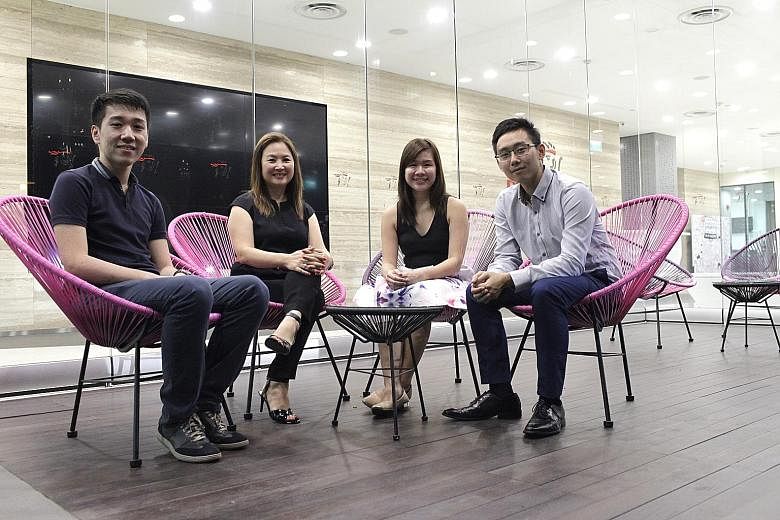Like many of his peers, final-year Nanyang Technological University (NTU) student Tan Chee Wee, 24, has some trepidation about the future and what he will do for work after graduating.
His parents, a housewife and an odd job labourer, are unfamiliar with the industries that interest him, so, like many of his peers, the mechanical engineering undergraduate tended to rely on the Internet or his friends for advice.
But he has been able to get more relevant guidance since joining MentorsHub, a mentorship initiative that pairs undergraduates with professionals. His mentor, Mr Low Jing Hui, 42, is a director of the service management office at CrimsonLogic, a provider of e-government solutions and services.
"I was worried that I couldn't get a job, but Mr Low told me to be open-minded about my options and not be obstinate in what I want to do," said Mr Tan, who had initially been set on joining the aerospace industry. "He told me that he had been a late bloomer and it was nice to have someone that I could relate to," added Mr Tan, who attended Ngee Ann Polytechnic before he went to NTU.
Dr Candice Chee, 51, founded MentorsHub last year. A corporate social responsibility programme under MetaCore Asia, the consulting firm in which she is a managing partner, MentorsHub targets undergraduates aged between 21 and 25.
In particular, it reaches out to young people from lower-income or single-parent families who might not have the same access to resources as their peers.
There are now 26 mentors and four committee members, and the number of mentees in the programme has grown from 13 last year to 22 in next year's batch.
Having started work with only A-level qualifications, and coming from a similar blue-collar family background, Dr Chee, who received her doctorate in business administration from the University of South Australia in 2012, said she started the initiative as she could empathise with the problems faced by young people.
"I graduated from the school of hard knocks, so I know how tough it is... I came across a couple of mentors at work who pointed me in the right direction," said the mother of three, aged between 17 and 23.
Mentees in the year-long programme are paired with a mentor after going through a psychometric test, a standard assessment used to measure one's mental capabilities and behavioural style, and a two-day retreat, during which they learn more about their strengths and personality traits. Each pair decides when and where to meet, but it must be at least four times a year.
Mentoring sessions address each individual's personal or work challenges. The mentees also attend at least six workshops a year, which touch on skills such as financial literacy or professional grooming.
Recruitment starts in the last quarter of the year, and candidates are reached through partner institutions like SIM University and NTU.
Dr Chee said they look out for young people with "teachability and commitment", and successful applicants pay a commitment fee of $80, which can be waived for those in financial need.
Ms Tng Hui Min, 22, a financial consultant who recently completed her studies in business marketing at NTU, said attending a financial planning workshop triggered her interest in the industry.
"I was kind of lost (initially) because I wasn't sure what I was interested in," she recalled.
Her mentor, 50-year-old entrepreneur Frederic Moraillon, encouraged her to take up her current job because it involved sales, which can groom her skills in many areas. Now, he helps her with issues she faces at work, such as business development.
The mentors also learnt some lessons from the younger adults.
"It is always a two-way learning process. I got to understand how a millennial thinks, and about their perspective and struggles - it is different in terms of (the degree of) competition they face at school, and for grades," said Mr Low.
- For more information on MentorsHub, go to mentorshub.sg or e-mail mgt@mentorshub.sg


